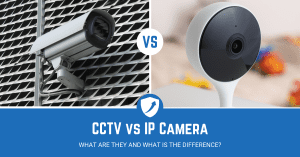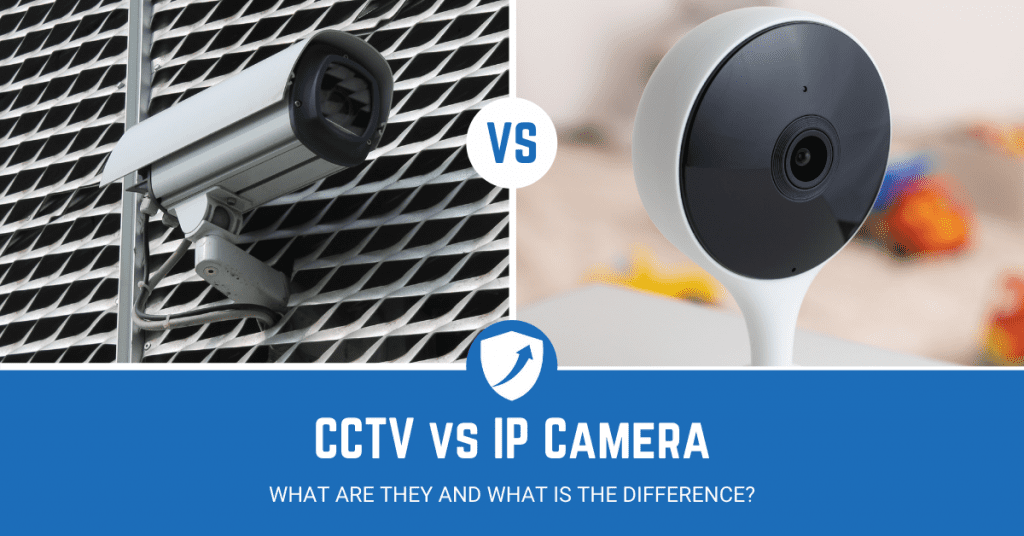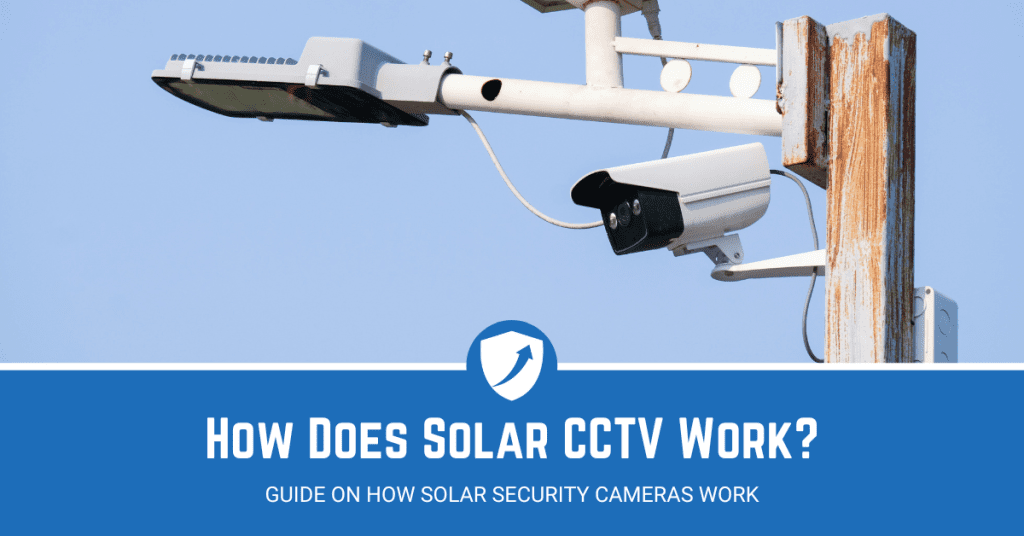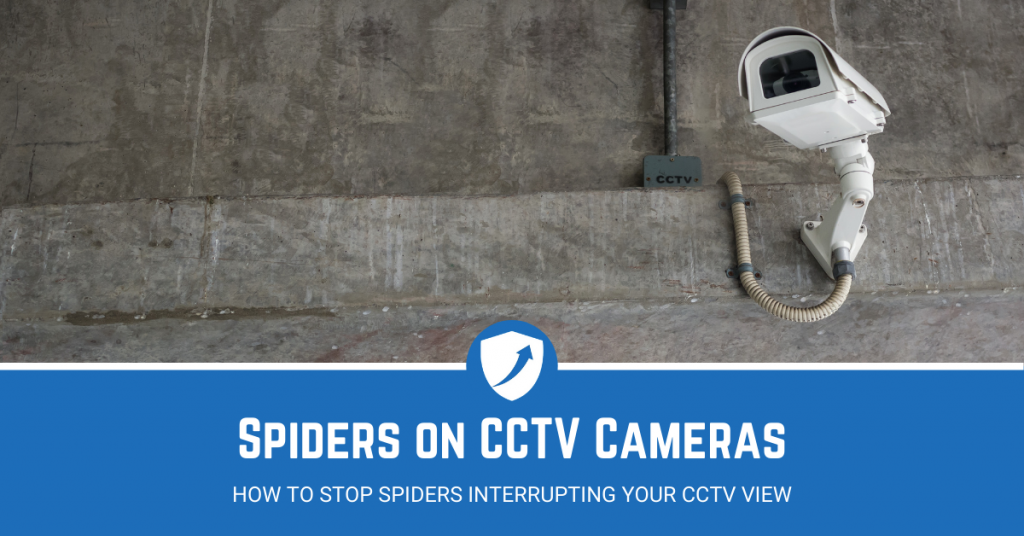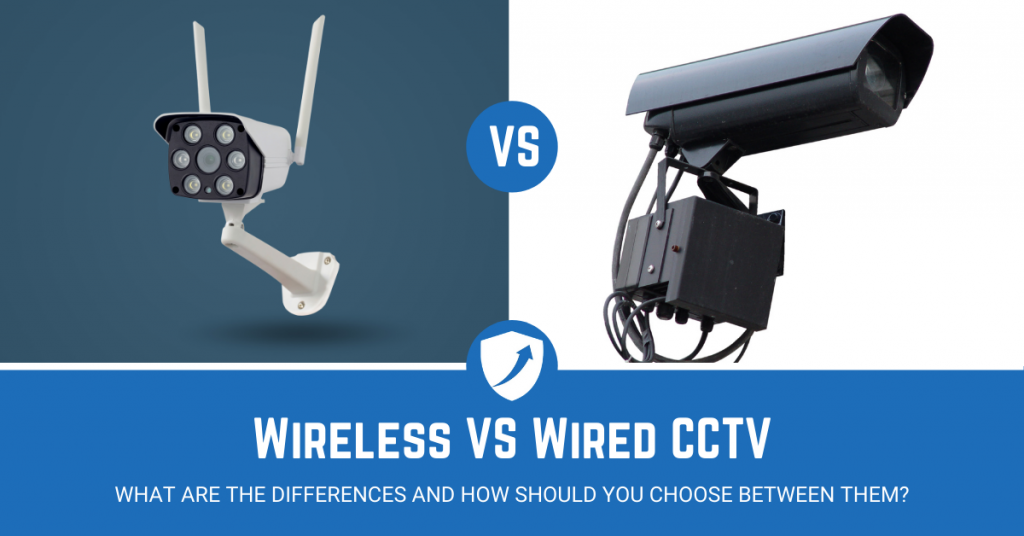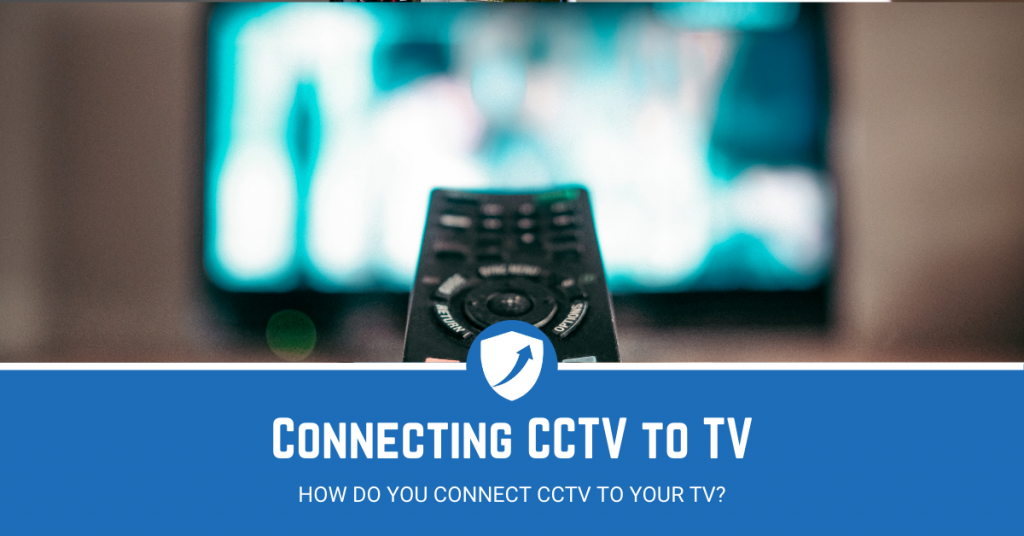Understanding the important role that CCTV systems play in security is imperative to developing a successful and secure plan for your business.
Although you would struggle to find someone who does not know what CCTV is, you are much more likely to come across people who are unsure about the nuances between Analogue CCTV and IP CCTV.
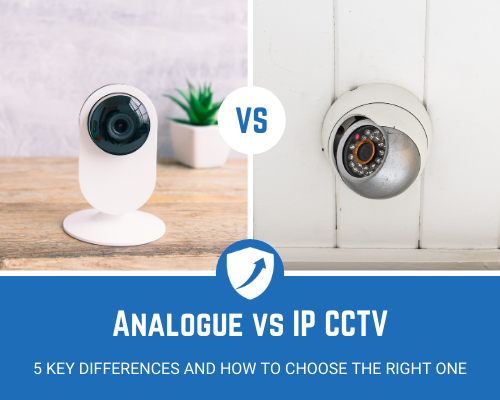
Across this guide, we will aim to quickly go over both system types, their benefits, and highlight their major differences. By the end of this, hopefully, you will know which is best suited for you and your business.
- Analogue CCTV Background
- IP CCTV Background
- Benefits of Analogue CCTV
- Benefits of IP CCTV
- IP CCTV vs Analogue CCTV – 5 Differences
- Summary
What's in this Guide?
What is Analogue CCTV?
Analogue CCTV is what most people think of when they consider business security, and this is for good reason, as it has been around for the best part of a century.
Originally created in the early 40s, CCTV has been a part of our lives for a long time. Although it has come on in leaps and bounds, the core principle is the same as it has always been, surveillance.
When most people think of CCTV cameras, they will normally think of the two major designs, Dome and Bullet Cameras. Although there are a lot of different types, these are very regularly used across a lot of industries, from retail, to security, to private, to health.
How Does Analogue CCTV Work?
Analogue CCTV cameras convert light into a video signal, which is then shown on a CCTV monitor and recorded for surveillance, security, and protection.
In older models, this video signal could actually be a series of digital stills, with a few seconds delay between each capture.
Often Analogue Cameras have been associated with black and white image capture, but a lot of models now offer full colour capture too.
Traditionally speaking, Analogue CCTV cameras do not have audio capability, and were solely video. However, in recent years, there has been a huge increase in newer models offering both audio and video, shortening the gap between Analogue, and IP cameras.
Analogue signals are commonly converted to digital signals to allow them to be stored on a computer, and archived for a certain period of time, if not forever.
What Is IP CCTV?
An IP, or Internet Protocol Camera is one of the newer additions to the CCTV market, and is a form of digital camera that can capture video and sometimes audio too. The video data is sent via an IP Network.
Their primary purpose is for surveillance, and are a newer version of CCTV, which was introduced in the mid-90s, as opposed to Analogue Cameras which have been around since World War 2.
IP CCTV is very frequently used in home security as it is easy to set-up, monitor, and manage. Despite this, there is a wide range of applications for these cameras, and you would struggle to find an industry that would not benefit from their usage.
How Does IP CCTV Work?
Unlike Analogue Cameras, IP CCTV systems do not require a local recording device, just a Local Area Network (LAN) or WiFi connection.
Depending on the model, the IP Camera might need a Network Video Recorder (NVR) to help record the digital video data.
Some IP systems are able to operate without an NVR, called a Decentralised IP system, which records straight to a storage device. This effectively cuts out the middle-man.
What Are The Pros of Analogue CCTV?
In this section, we will briefly look at a few different pros of using an Analogue CCTV system. As with anything in the security field, there are countless reasons you may choose a certain system or solution, these are just some examples.
Cost
Due to the widespread availability, amount of vendors, and models, you will not struggle to find a good price for an Analogue CCTV system. With this being said, you do want to carry out your due diligence and research the model you are buying.
Simplicity
Analogue Cameras have been commonplace in the industry for decades, and are used by all business sizes. They are fairly rudimentary to run once set-up, and often use a Digital Video Recorder (DVR), which converts the raw video into digital information and stores it.
Improving Technology
If you were shopping for an Analogue CCTV system a decade ago, you may find yourself a little limited, and struggling to find higher quality models with the right resolutions and features. Nowadays, High Definition (HD) Analogue cameras are very common and are a far cry away from their old counterparts.
What Are The Pros of IP CCTV?
To keep this comparison brief, and digestible we have limited each set of pros to 3. This will give you a quick overview, and a footing in the benefits of each type of CCTV system.
Reliability
Due to their design, IP Cameras have built-in reliability via their data compression, and encryption. As they work via your network, they are as reliable as you determine, and adding a form of backup in place will further improve this, and minimise downtime.
Management
IP CCTV systems are very user friendly, and are designed to be easily managed. The addition of features such as push-notifications, false alarm detection, and custom settings, give you full control over your system.
Flexibility
One of the biggest benefits of an IP CCTV set-up is the flexibility they bring. A lot of these systems use either POE or wireless technology, so have a broader placement area. Couple this with their wider field-of-view, and read range, and the flexibility increases further.
What Are The Main Differences Between IP CCTV and Analogue CCTV?
Knowing the differences between these two systems will arm you with the information to make an executive decision for your business.
We will be looking at 5 of the main differences between IP and Analogue CCTV, there are more, but these impact almost everyone.
Cost
As with most businesses, and operational decisions, your budget will often determine what type of security solution you will implement. This is why a lot of companies will lean towards Analogue Cameras as they are typically a lot cheaper than their IP counterparts.
Although it is fairly likely cost will be one of the deciding factors when you are picking your CCTV system, and in turn, installing your CCTV, going for the cheaper option will cost you in the long run.
Having a bad security system can often do more harm than good, so ensure you do your research, and get a decent model at the right price for you.
Video Quality
Regardless of price point, it is fairly common knowledge that IP Cameras are a higher video quality than Analogue Cameras. IP Cameras are much more likely to have a wider field of view, higher quality, and more impressive zoom functionality.
Despite this, Analogue Cameras often outperform IP Cameras in low-light conditions and have better night modes.
The gap between both these video quality points has been shortened in recent years, but there is still a difference between the two.
Installation
IP Cameras have been designed to be much easier to set-up and often give a much higher flexibility of placement, either due to design, or range.
A lot of IP Cameras use Power Over Ethernet (POE) cables, basically meaning that both their power source and their data (video) can use one cable. This makes it much easier to set-up and operate.
However, there are some IP cameras that do not require a POE CCTV set-up, which moves us onto our next point that separates these two types of CCTV cameras; wires.
Wired vs Wireless
One of the most obvious differences between these two types of CCTV Cameras is the fact that IPs are often wireless, whereas Analogue is wired.
This not only limits the usage and placement of Analogue cameras, but makes IPs a lot more viable both inside and outside without much expertise or knowledge.
If you pick a wireless option, you are more likely to be able to successfully set it up without anyone’s help. Whereas it is unlikely you will be able to wire your Analogue CCTV alone.
Distance
Analogue Cameras can typically send video via a twisted-pair cable up to 1 mile away and via coaxial cables nearer 0.2 miles. Despite this, the further the raw data travels, the more clarity it will lose, which limits the further distance usage of Analogue Cameras.
On the other hand, IP Cameras can send data unlimited distances using IP networks and short distance via twisted-pair ethernet cables. Due to the IP Camera’s images being digital they do not lose clarity regardless of this.
IP CCTV vs Analogue CCTV Summary
There is no doubt that both of these types of CCTV technology will be a viable solution for any business type or industry, it is just working out which best suits yours.
There is no one-size-fits-all solution when it comes to security, and the final decision will be determined by a lot of factors, from your budget to your location, to your size.
Here at Upcoming Security, we have designed a range of security guides to be accessible and useful to all skill levels and business types.


